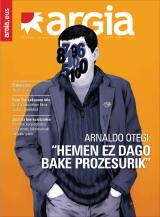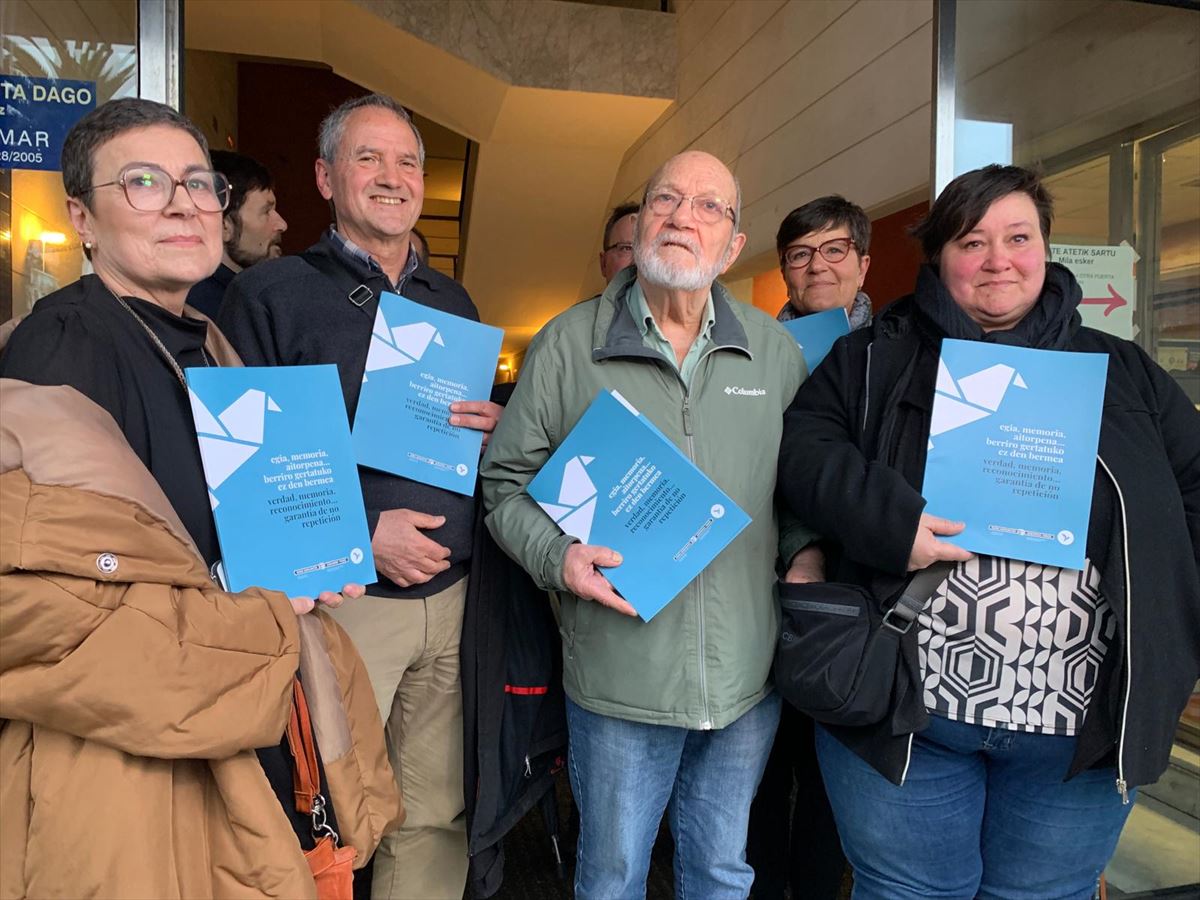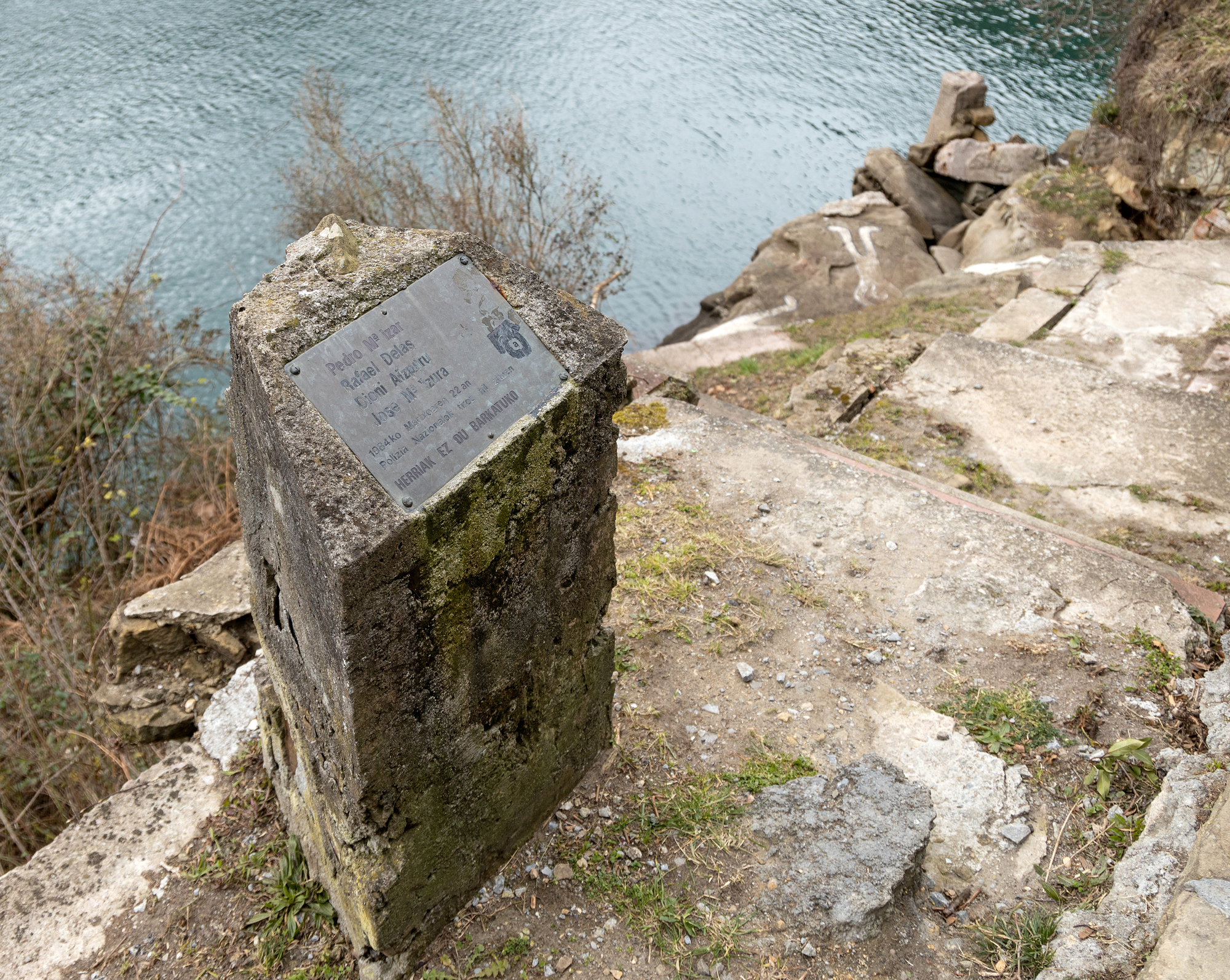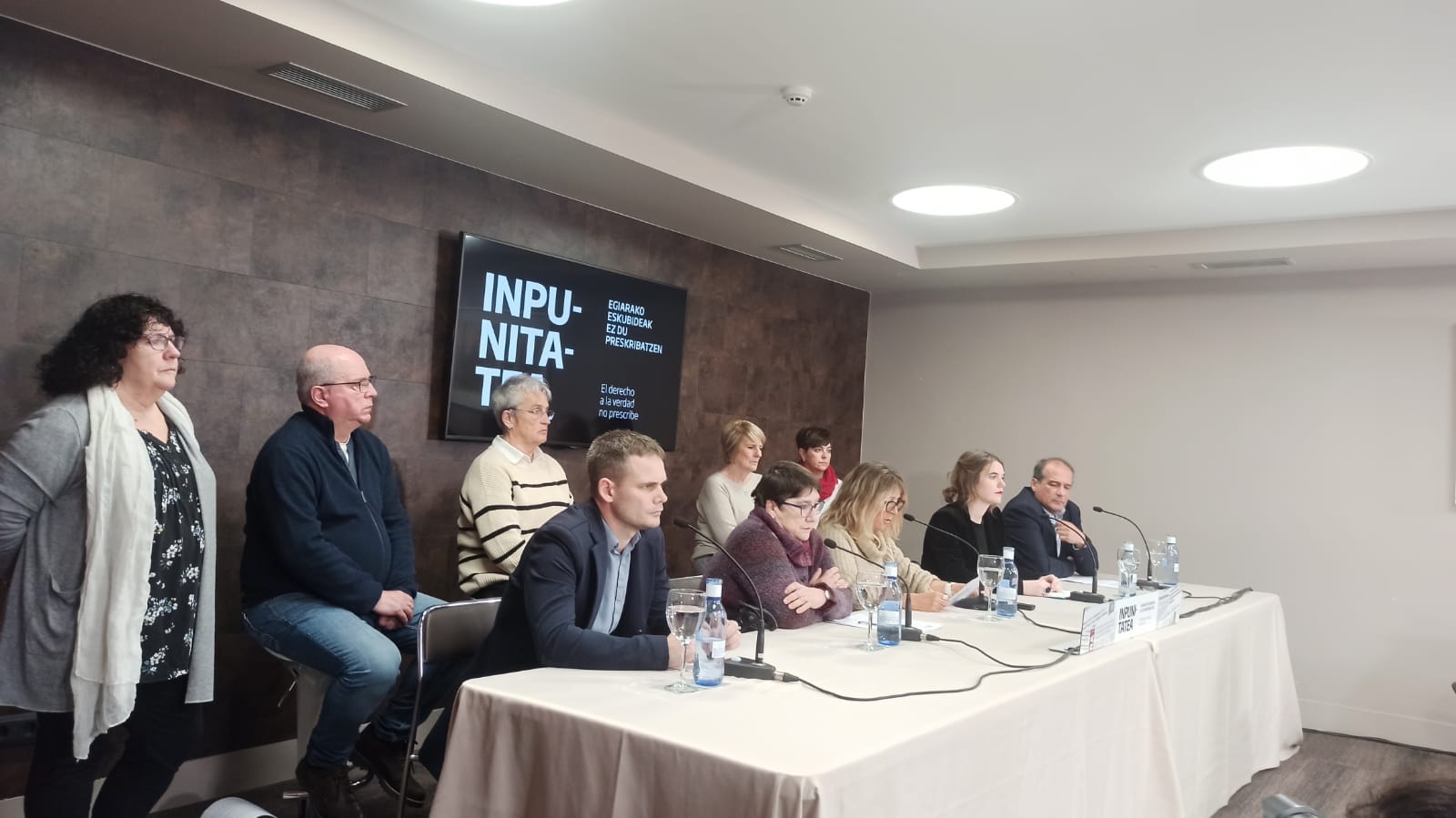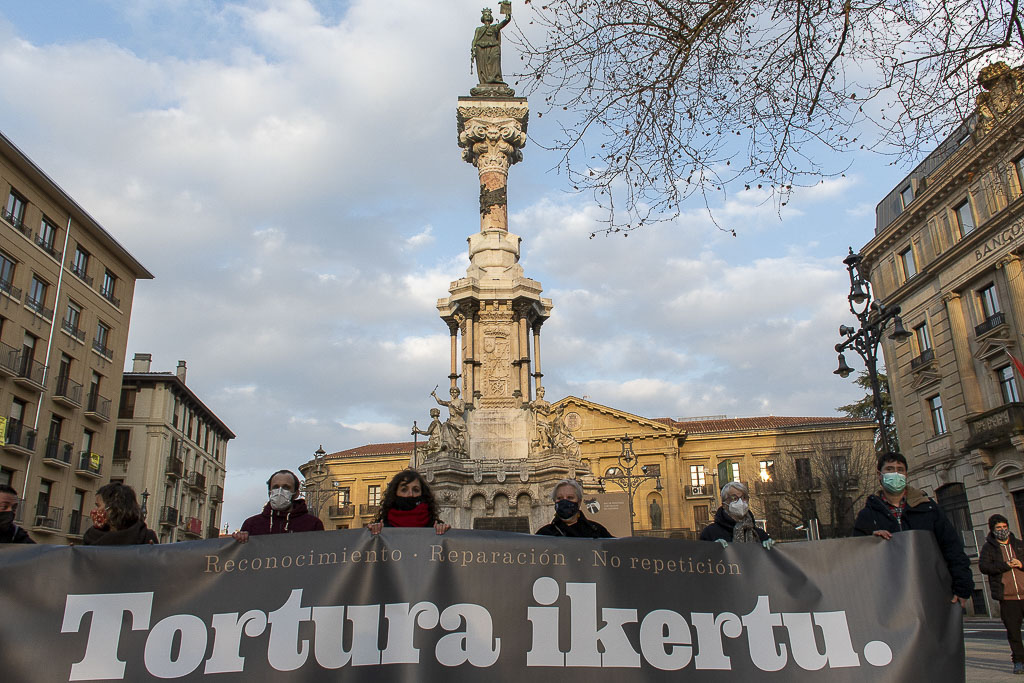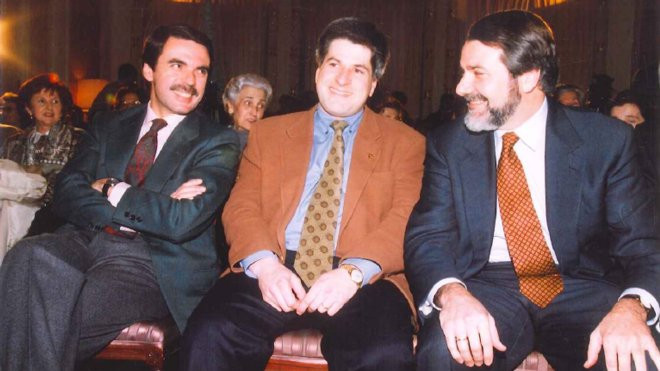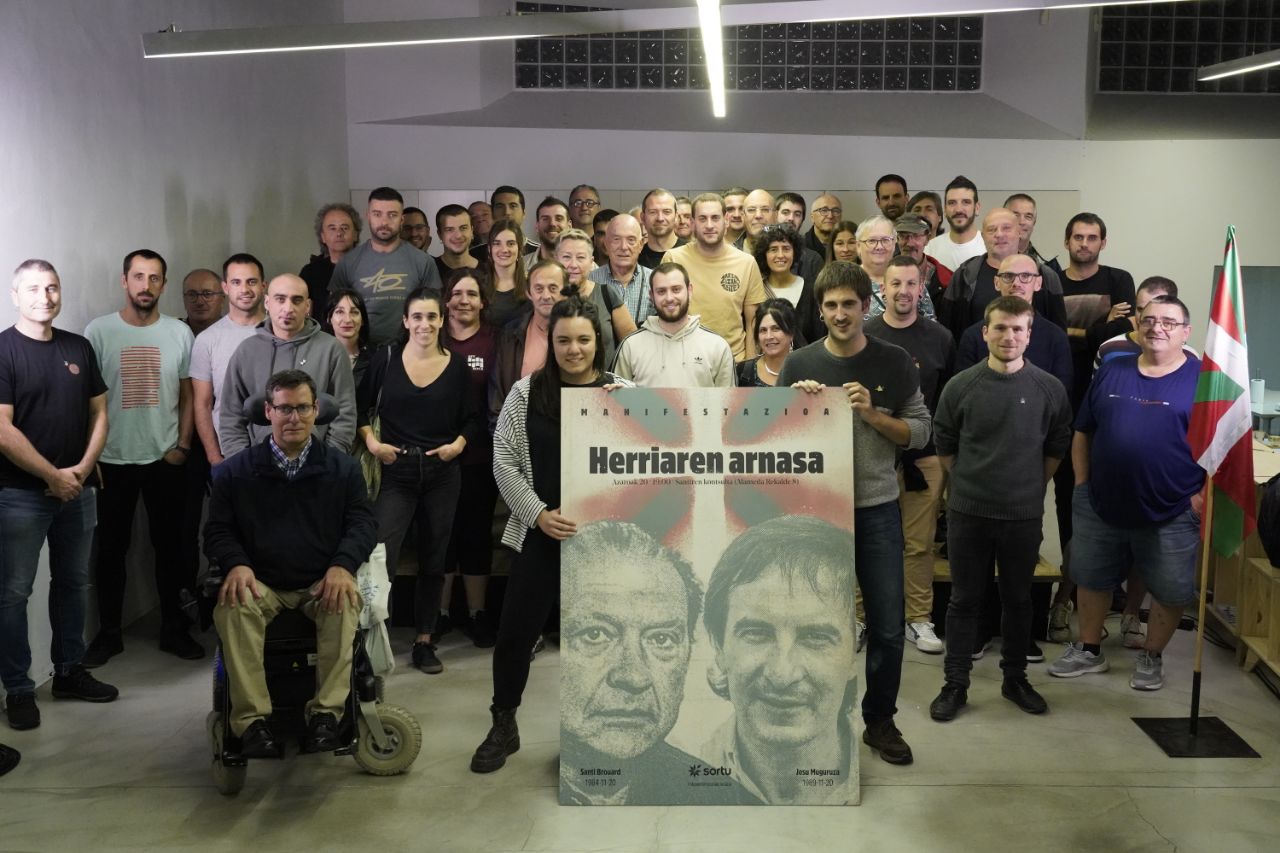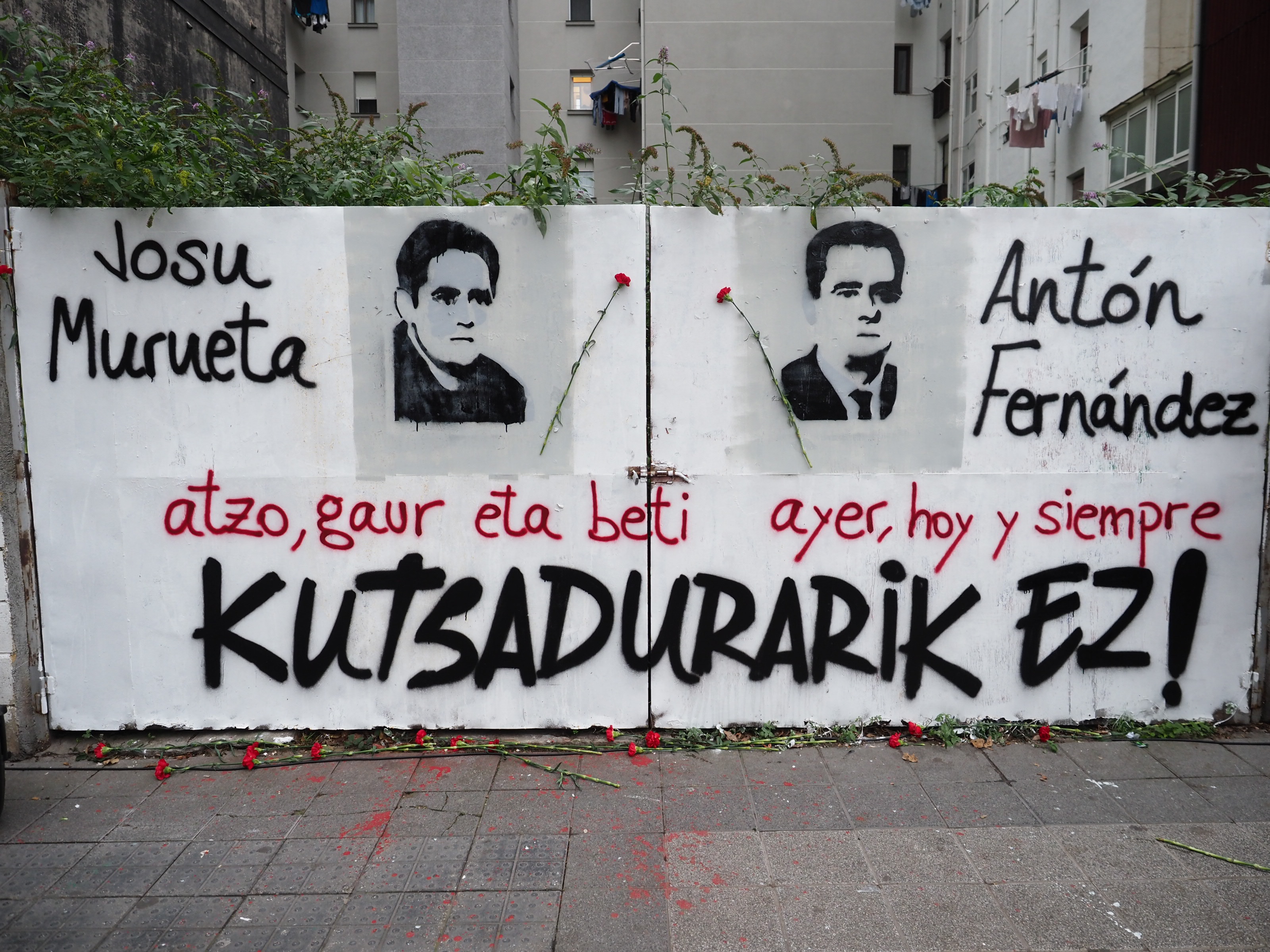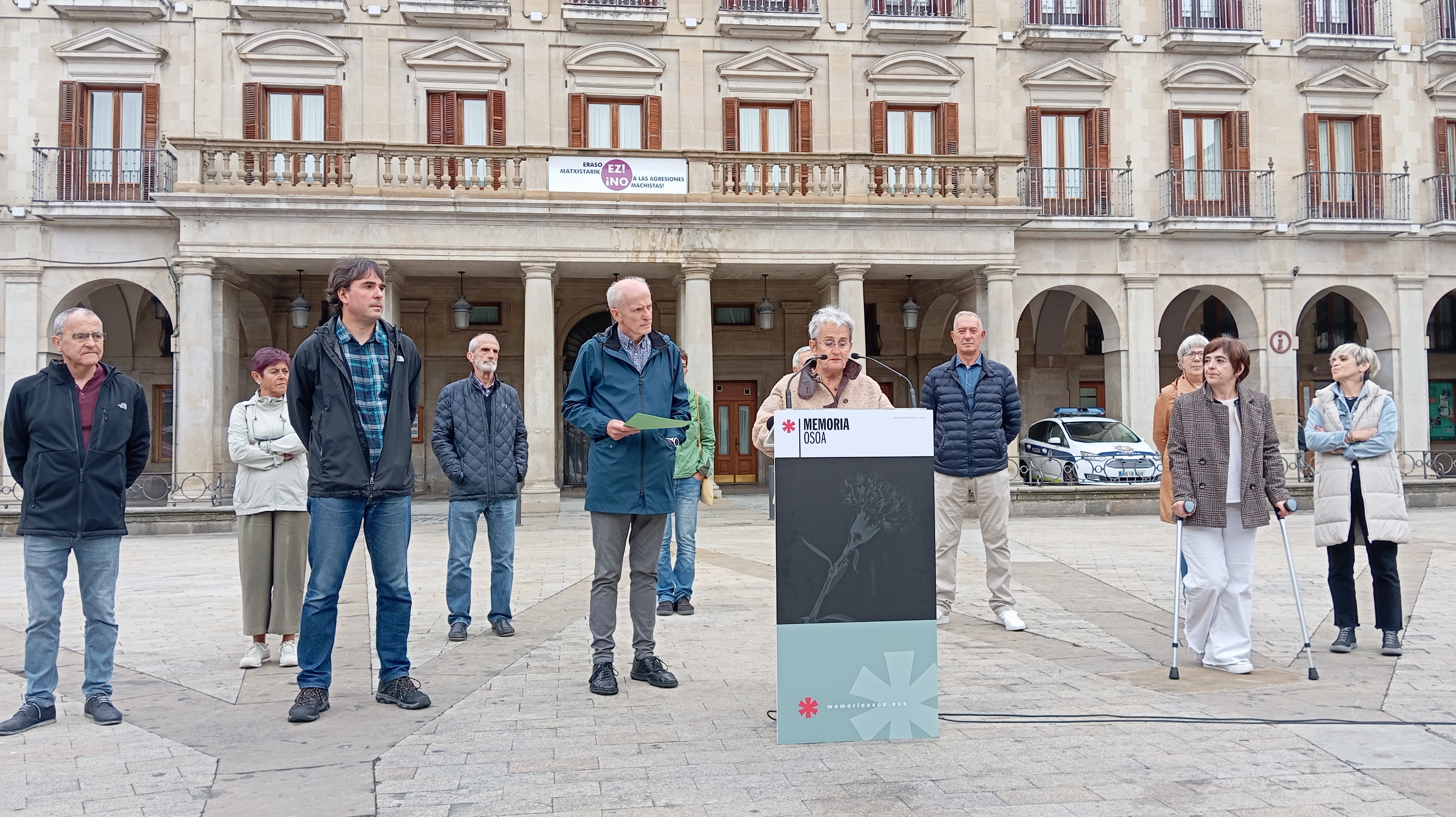"Here is a strong social awareness, necessary to cover the social fracture"
- Lorenn Walker, an American doctor at the University of Hawaii, is one of the world's largest restorative justice experts. He has recently been in San Sebastian teaching the course. He has explained to us what this kind of justice is and how we can use it in our environment.

What is restorative justice?
In English, we call it Restaurative Justice, and according to the UN definition, it's a developed response to crime. Ordinary justice considers the breaking of any law as an aggression against the State and punishes it accordingly, usually in jail or with financial penalties. Restorative justice, however, comes from another point of view. Crimes are committed against people and it is these victims who, in some way, need a solution. That is what our model of justice responds to. Although in some cases it is known to be impossible, the main objective is to recover the situation prior to the crime or, at least, to approximate it as closely as possible.
How did he come to investigate this kind of justice?
My life has not been easy. I lived only at the age of 14, at 15 I left school, at 16 I spent a short season in jail and at 18 I was a mother. But the most decisive fact came when I was 24. I had an attack and I was about to choke to death. At the last moment, I told the aggressor that he was a mother and he unleashed my neck so I would run out. That's what changed my life. I became a victim without any compensation. I enrolled in the Law School, and that's where my career began.
What do you propose is new?
No, not much less. Historically, all civilizations of the world have had justice in that way: what it gave of itself had to fix the created situation. There is always a victim, and traditionally that has been the center of justice in the world. A thousand years ago the Normans conquered most of Europe and set the state model in motion, abandoning the re-implanting path. Since then, the justice that has been used in the West has always been in favour of the state.
The rebirth of restorative justice occurred in 1974 in Ontario, Canada, and has since been used in many villages. Perhaps the best known case is that of the South African Truth and Reconciliation Commission, but such experiences have also been implemented in other areas such as schools, labour relations, serious crimes…
What is the procedure?
The first approach occurs with the victim and the mediator asks him directly: “What do you want? What do you need?” Sometimes petitions are very common, a house adapted, money to survive or psychological help. On many other occasions, however, they need answers and explanations, they want to hear the reasons and that is where the important field of our methodology, the circles, comes in. With the agreement of the participants, individual meetings are held and the most important moment of the process is the meeting of all the entrepreneurs. It brings together the victims, their family and friends, the criminals and their relatives, under the supervision of a facilitator. We call that a circle, and in it they talk about what has happened and its consequences, without limits. The explanations and feelings are mixed up, the main goal is to let out what they have inside. Sometimes it works well, others don't.
Why not sometimes? What are the problems?
The main problem may be that the offender is unknown or fled, as the process cannot be initiated. In political cases, however, it is also an obstacle to see the damage caused by the victim as a result of a fair struggle or to show no regrets. Many times, simply, not wanting to participate. On the part of the victims, the causes are of hatred for the offender, of not being able to forgive, of not wanting to remember or of fear of the outcome, that is, of feeling that he is betraying his family member if there is a positive result. All the reasons are acceptable to us. Sometimes, the process is carried out by searching for similar people, who want or cannot represent another victim or victim of this type of crime.
Not all crimes are the same, some are more common and others are more serious. When is this restorative system applicable?
In any case, there is always some affected. In some cases it is much easier to find a solution than in others. If you've been robbed of your car, it's enough to come back. The problems are encountered in serious crimes, especially in cases of murder. In such cases, since it is not possible to return to the previous situation, other ways should be found. There are also difficult cases, when the same person is a victim and a criminal, for example, the ETA member who has been tortured or the drug trafficker who has been injured in an attack. The possible cases are endless, the perfect formula cannot be found, but general criteria can be established which will be useful in most situations.
What are these criteria?
The first is to show goodwill. One of the victims once said that you can't drive a car just by looking at the mirrors, because what's in front of you can't see. That is the philosophy that is needed. We must not forget this, but the aim is to make life from now on easier and happier. Another criterion is respect. Anyone will respond well to respect and facilitate communication. This does not mean that it is a nice conversation, nor that the participants become friends, but you have to be willing to understand the attitude of the other. It must not be forgotten, however, that the victim is the main protagonist and the one who should best get out of this process. That does not mean that the offender should be crushed, at least that is not our goal.
Do you see that this is possible at the end of the conflict in Euskal Herria?
This system is valid in any conflict. I do not believe in prison policy. I don't mean they have to disappear. There are a class of people, the most dangerous, those who need some kind of isolation, cannot live among the citizens. For this kind of people you do need jail, but in most cases you don't.
But here are those who deny the “conflict”…
It would be as weird as denying friendship or hatred. Conflict is one more part of human relations and not the least important. Conflicts are everywhere and here too. Accepting that is an essential step towards a solution.
Do you think it is essential to ask or obtain forgiveness?
Fred Luskin wrote a beautiful book, Forgive for good (2002), in which forgiveness is presented as a skill of life that not everyone has. He also points out that forgiveness is a tool to reduce stress. I too am of that opinion, but I cannot impose this thinking on anyone. Forgiveness is not the goal of restorative justice, but the improvement of life from now on. In that it is not essential to ask for forgiveness or give forgiveness, but it is true that the request for forgiveness makes the way much easier.
The peace process is currently in a process that has not begun, among other things, the case of the victims. Is anyone working here in restorative justice?
Yes, a little yes. In this area there are several experts in restorative justice between jurists and criminologists, including Idoia Igartua, Alberto Olalde and Gemma Varona. The new context can help a great deal, as the fact that ETA has given up armed struggle is an important step, and it is possible that the problems and obstacles of other times will not be found on this occasion. Langraitz Bidea is one of the major projects where, instead of circles, interviews are being organized in pairs. I do not know all the cases, but I have been told that most of the participants are making very positive assessments.
And how do you see it?
Before I come here, I have been through Rwanda and Serbia. Other years in Korea, Vietnam or Nepal. Compared to them, I do not believe that the problem here is irreparable. Moreover, the social problem has no difficulty. The quality of life of Basque society is good, the Basque Government has resources and has shown its willingness to fill the gap. In addition, I have seen strong social and family networks, that is, victims and victims will not be left without social assistance, as families and their relatives are responsible for this. Look, today, as I was walking through San Sebastian, a child has suffered a small accident with his bicycle. Soon they've come to help five or six people, they've lifted him up, they've taken the bike off the road and they've been with him until their parents come. That's impossible in many places, you take care of your things and touching a child can lead to the indictment. Here, in a way, there is a strong social awareness, and that will be essential to curb the social fracture.
Azken astean ezagutarazi moduan, Eusko Jaurlaritzaren Balorazio Batzordeak txosten banatan aitortu ditu estatuaren biktima gisa. Justizia sailburuak ekitaldi pribatu banatan entregatu dizkie dokumentuak.
Rosa Zarra Ertzaintzaren pilotakada baten ondorioz hil zela da Eusko Jaurlaritzako Poliziaren Biktimen Balorazio Batzordeak atera duen ondorioa, Berria-k jakinarazi duenez. Orain arte, Ertzaintzak beti egin dio uko bertsio horri, eta Rosa Zarra berak zuen gaixotasunaren ondorioz... [+]
Espainiako Poliziak duela 41 urte hil zituen tiroka Dionisio Aizpuru, Pedro Mari Isart, Jose Mari Izura eta Rafael Delas gazteak, Komando Autonomo Antikapitalistetako kideak.
GALeko biktima talde batek eman du kereilaren nondik norakoen berri Bilbon egindako prentsaurrekoan, Egiari Zor fundazioak eta Giza Eskubideen Euskal Herriko Behatokiak lagunduta. GALen aurkako eta, zehazki, José Barrionuevoren aurkako kereila aurkeztuko dute.
Nafarroako Gobernuak ofizialki aitortu ditu gure lurraldean giza eskubideen urraketa larriak jasan zituzten Estatuaren indarkeriaren beste zazpi biktima. Horien artean, hitzez hitz “motibazio politikoko biktima gisa” aitortzen ditu Patxi Erdozain, Eneko Compains,... [+]









